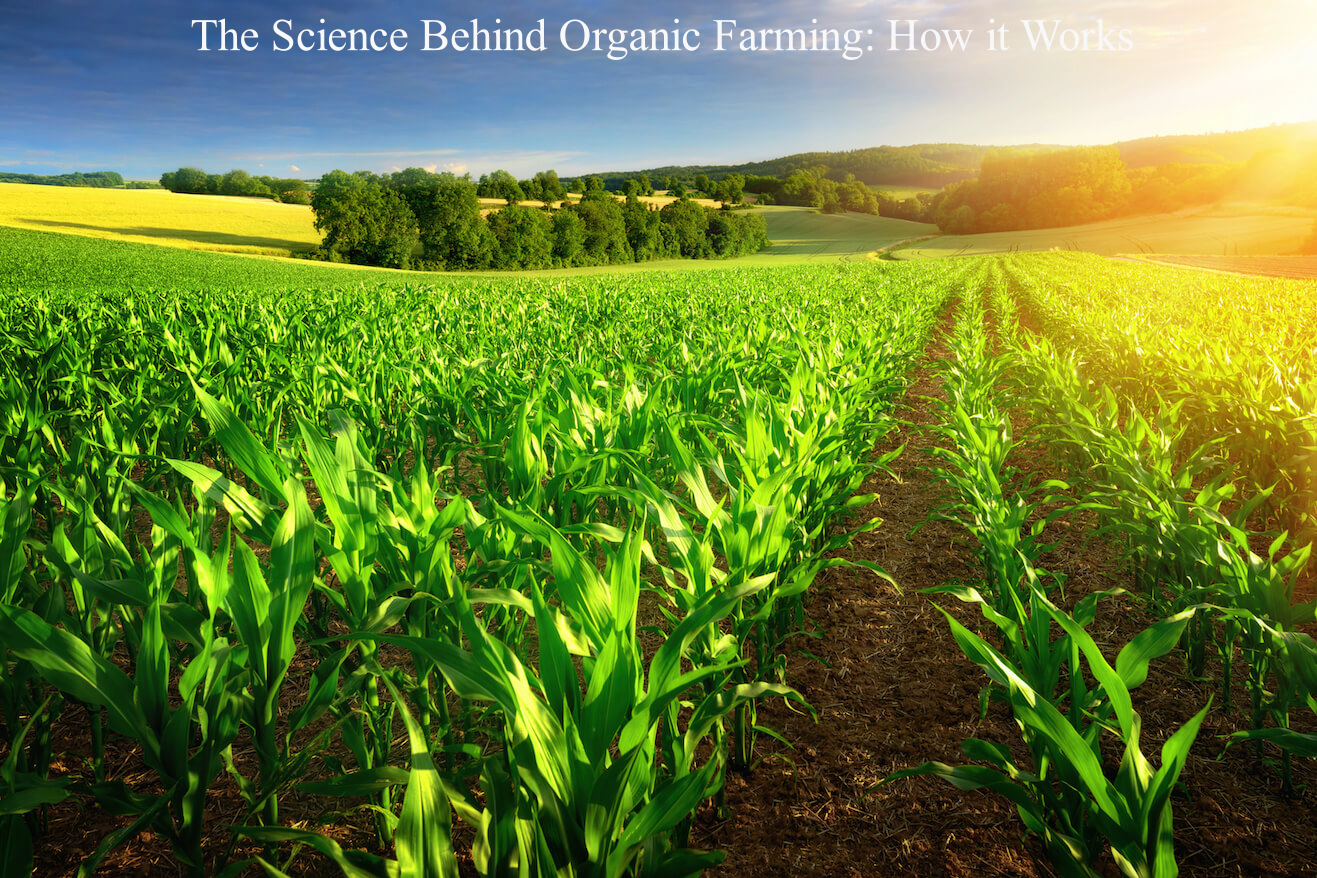The cultivation of plants through the use of organic farming practices eliminates the application of artificial fertilizers, pesticides, and genetically modified organisms (GMOs). It entails carrying out a series of practices with the goal of improving not only the soil’s health but also that of the surrounding ecosystem and the crops. The question is, how does organic farming actually work? In this post, we will delve into the science that underpins organic farming and discuss the many ways in which this type of agriculture is beneficial to both the environment and our health.

Soil Health: The Foundation of Organic Farming
Organic farming is based on the principle that healthy soil leads to healthy crops. The soil is alive with a vast array of microorganisms, including bacteria, fungi, and insects. These microorganisms play a critical role in maintaining soil fertility and nutrient cycling. Organic farming practices focus on nurturing these microorganisms and creating a soil environment that is rich in organic matter, nutrients, and beneficial microorganisms.
One of the key ways that organic farmers maintain soil health is by using crop rotation. Crop rotation is the practice of alternating different crops in a field from one growing season to the next. This helps to prevent soil depletion and nutrient imbalances by ensuring that different crops are taking up different nutrients. It also helps to reduce pest and disease pressure by disrupting the life cycle of pests and diseases that may be specific to a particular crop.

Natural Pest Control: Working With Nature
Organic farming also emphasizes the use of natural pest control methods, rather than relying on synthetic pesticides. This involves working with the natural ecosystem to encourage beneficial insects, such as ladybugs and lacewings, that prey on pest insects. It also involves using crop rotation and companion planting to disrupt the life cycles of pest insects and reduce their numbers.
Another key method of natural pest control in organic farming is the use of trap crops. These are crops that are specifically planted to attract and trap pest insects, thereby reducing the damage they can do to the main crop. For example, planting a trap crop of mustard can help to reduce the damage done by cabbage worms to a neighboring crop of broccoli.

Nutrient-Dense Crops: Good for You, Good for the Environment
Organic farming practices lead to the production of crops that are rich in nutrients and free of harmful chemicals. This is because organic farmers focus on building healthy soil, which in turn leads to healthier crops. Studies have shown that organic crops are often higher in vitamins and minerals than conventionally grown crops, and also contain fewer harmful substances such as pesticide residues.
In addition to producing healthier crops, organic farming also benefits the environment by reducing pollution and conserving natural resources. Organic farmers use natural fertilizers such as compost and manure, which help to build soil fertility and reduce the need for synthetic fertilizers. They also focus on conserving water resources by using techniques such as drip irrigation and mulching.
Organic farming is a method of agriculture that is based on promoting the health of the soil, the ecosystem, and the crops. It involves a set of practices that focus on nurturing beneficial microorganisms, using natural pest control methods, and producing nutrient-dense crops. By working with nature rather than against it, organic farmers are able to create a sustainable system of agriculture that benefits both the environment and our health.



No comment